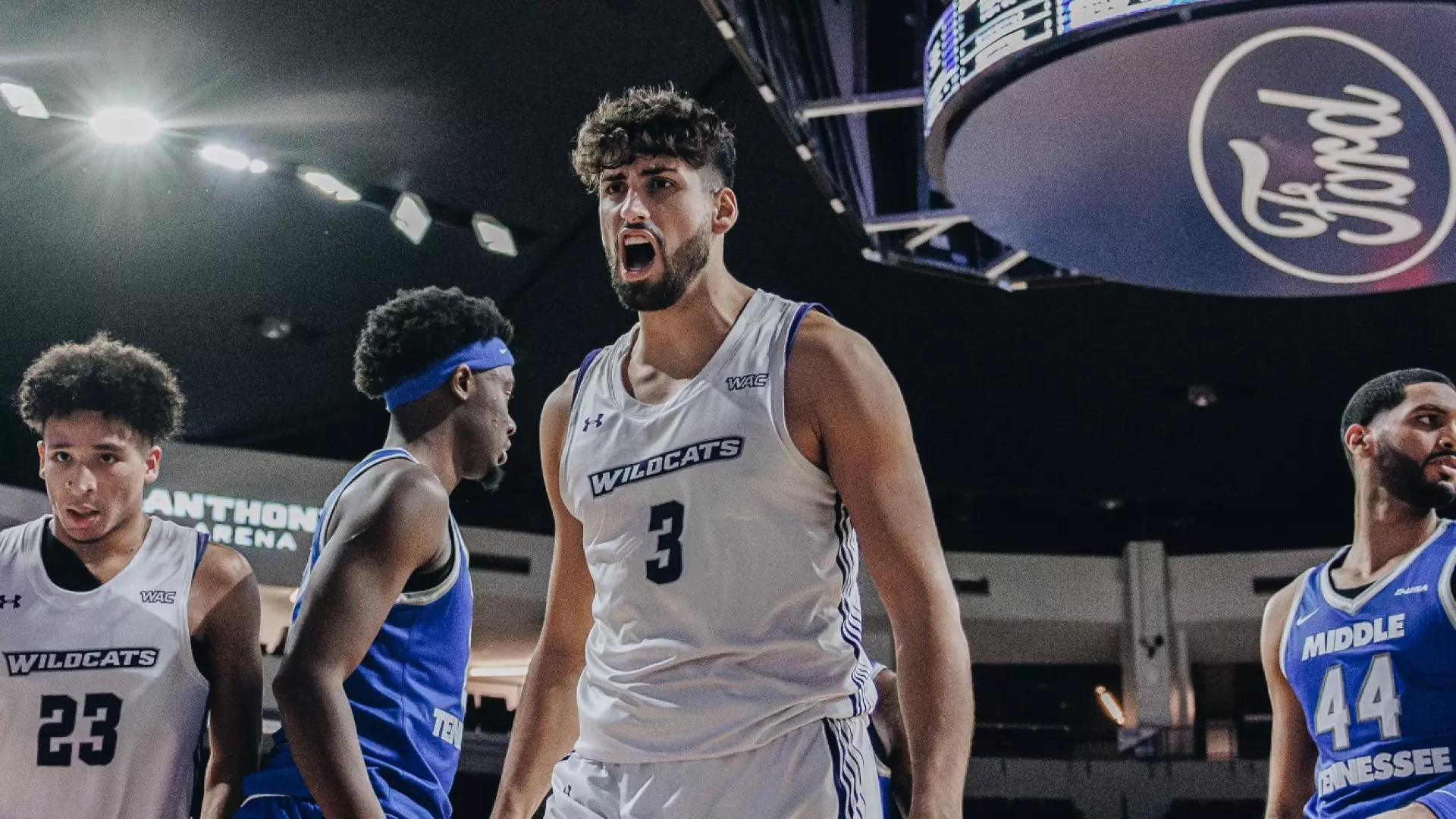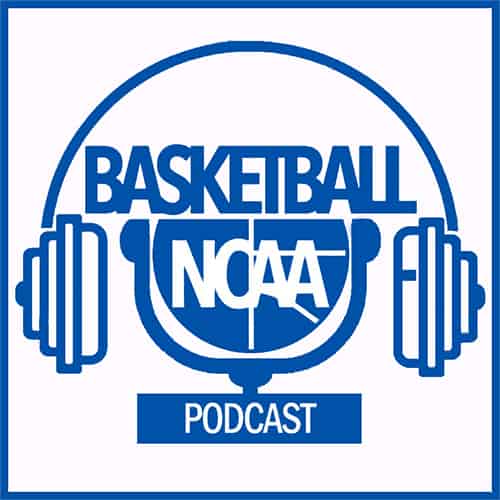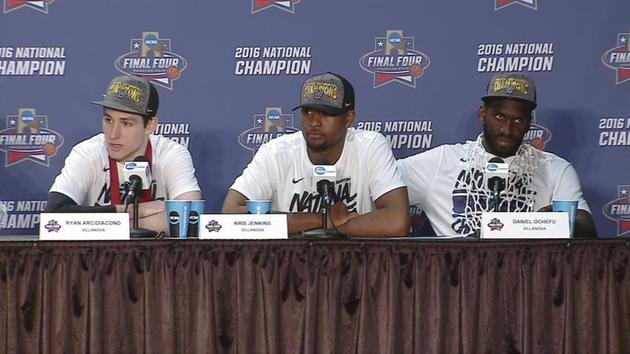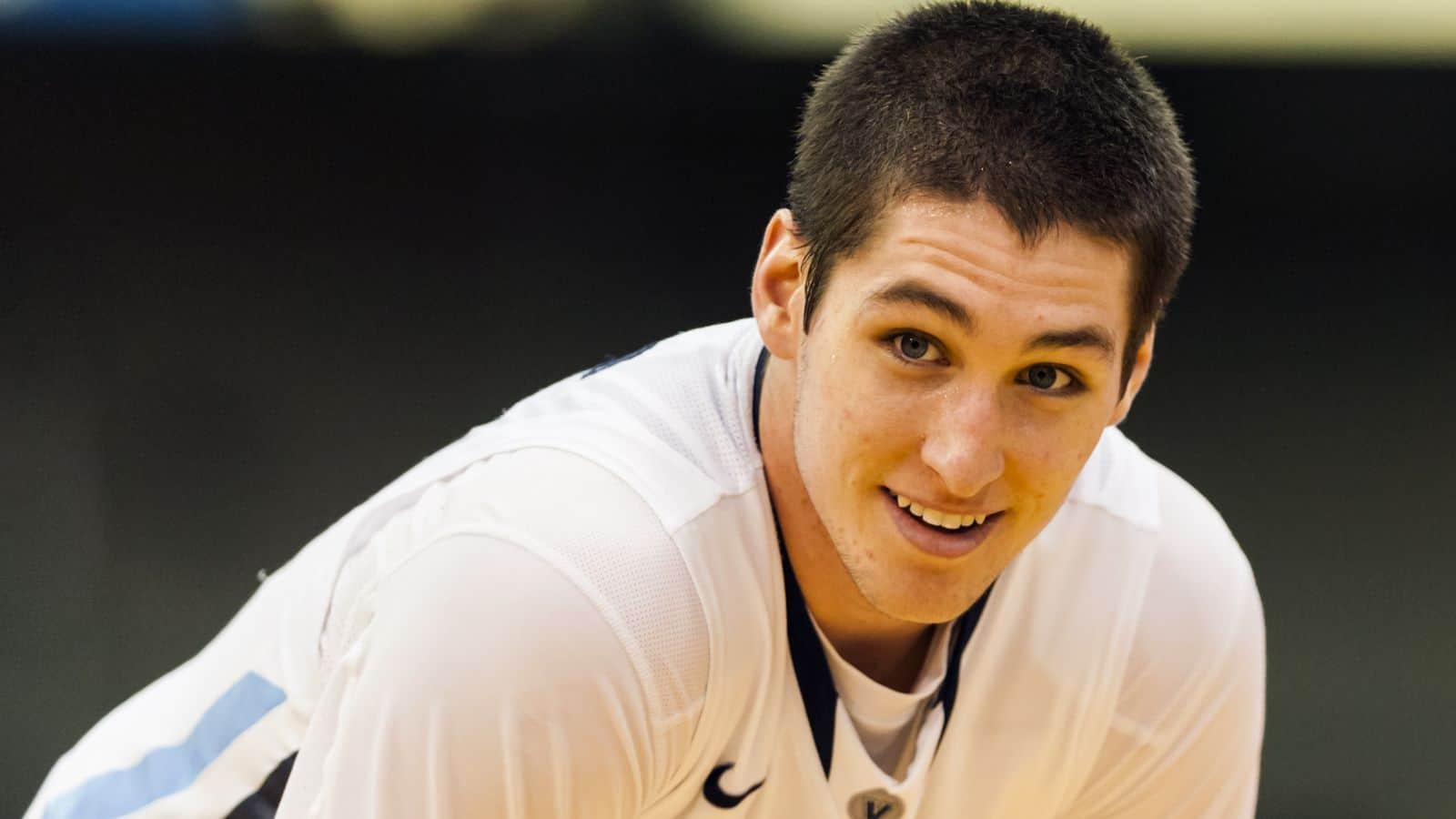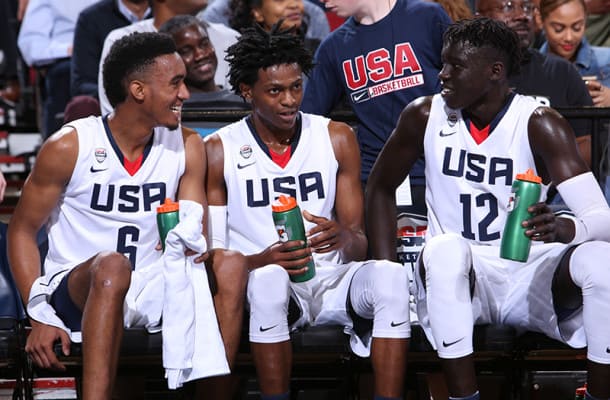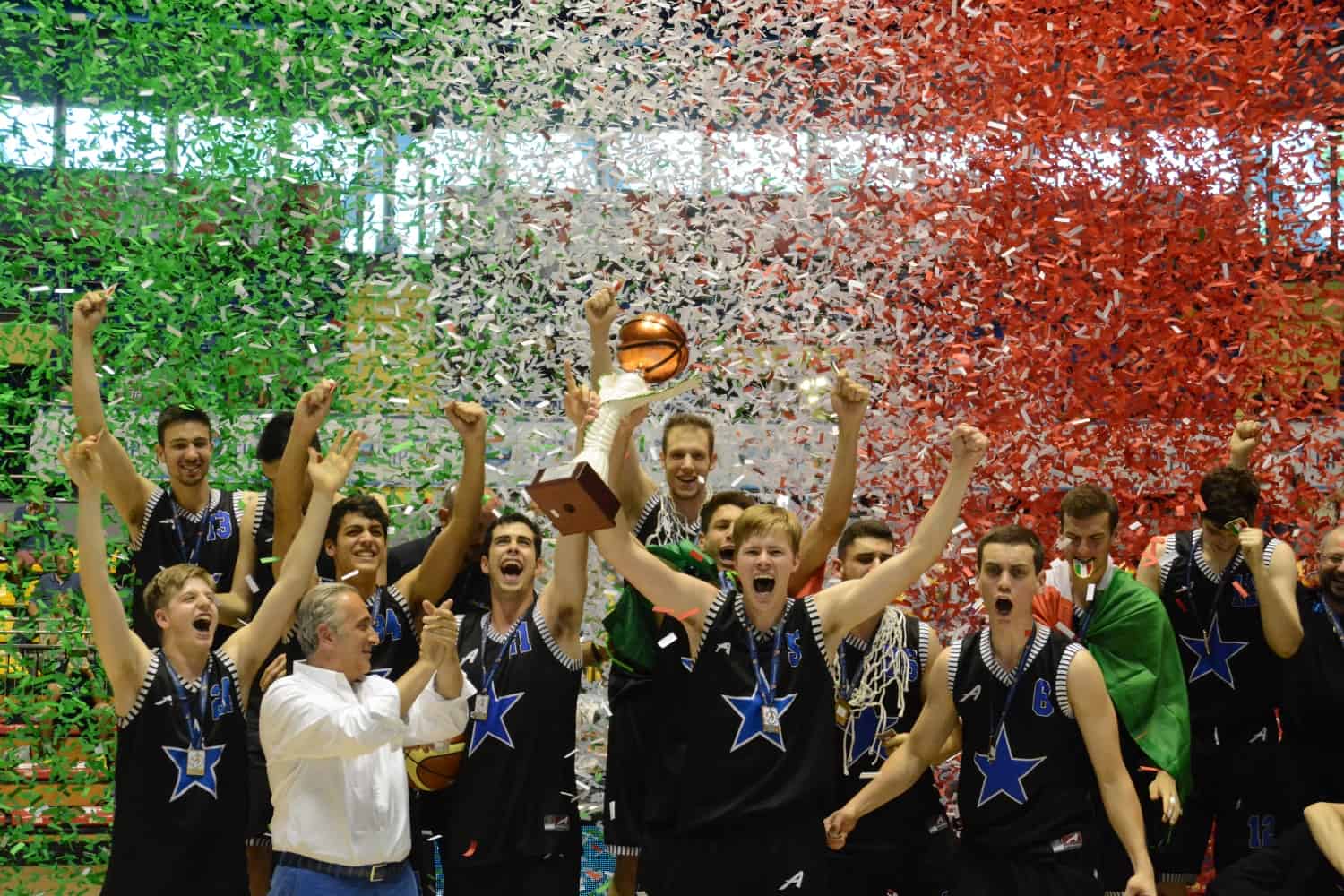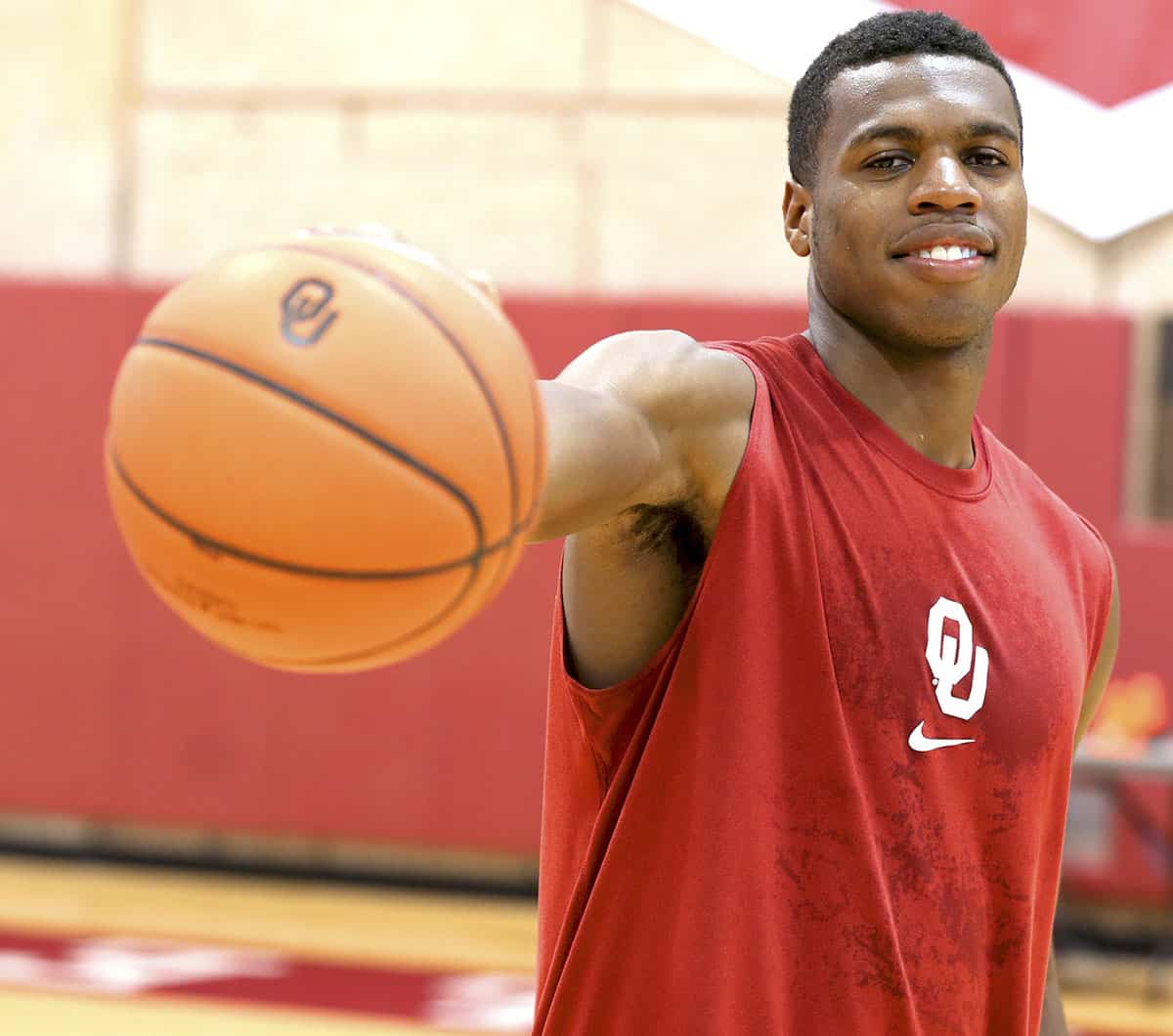It wasn’t the first summer in which the corridor between Europe and America was heavily traveled. The first real explosion of international recruiting had happened just before Covid, bringing many players—including quite a few Italians—to the NCAA. Leonardo Bettiol finds himself in the middle of these two phases: a forward, born in 2002, who in 2021 decided to move to Texas, to Abilene Christian, a small Christian college with just under 7,000 students. During his four years there, a lot changed—both for Leonardo as a player and for the NCAA as an institution—and this offseason he decided to take advantage of his final year of eligibility to see what the portal could offer him.
The result was UMass, a historic college in Massachusetts, coached in the 1990s by John Calipari, with whom they reached a Final Four, and now led by Frank Martin, a veteran of college basketball who took South Carolina to the Final Four in 2017. We spoke with Leonardo about his American experience.
You arrived in the NCAA with some professional experience behind you, a great environment like Treviso, and games with Rucker. How has your journey been during these four American years?
The Leo from four years ago was definitely much less mature, both physically and athletically, and in life in general. Over these four years at college, I’ve worked a lot in the gym: when I arrived in the United States, I weighed 205 pounds; now I’m about 240. At first, I struggled to express myself, but now my English has improved a lot. In mid-April, I graduated in Business Management, shortly before transferring here. So far, it has been a great experience.
How did the idea of the NCAA come about four years ago, and how did you end up at Abilene Christian?
It was something I had thought about, something that had always been in the background, especially seeing players like Federico Poser, who is also from Treviso, or Davide Moretti. It was always a fascinating dream, but at the same time something distant and a bit scary. When I realized there was a chance to live here, my agent told me that some teams in America were interested in me. Abilene Christian contacted us, and we decided to seize the opportunity. It was an important program, coming off a win against Texas (March Madness 2021, ed.), and considering it was the first year after Covid, we decided to accept the first opportunity that came up.
Tell us about your growth during the four years at Abilene.
My first year in America was probably the hardest: arriving without knowing anyone or the environment was complicated. After a month, the assistant coach told me that the best thing would be to take a redshirt year—not play the whole year to improve and be ready the following year. It was a tough decision, but today, four years later, I know it was the best choice. The second year was a real rollercoaster: sometimes I played, sometimes I didn’t, without knowing what to expect. I just had to stay ready, work hard, and hope my name would be called. In the third year, I started playing a lot, especially in the second half of the season. At first, I played few minutes, then, after a minor injury, I became a starter and played the whole year. The coach gave me a lot of confidence, even though I missed some games due to a ligament strain. As soon as I came back, I gained more and more trust, becoming a starter in the last 18-20 games. Last year was my best personally.
How tough is it to face a redshirt year?
During that year, I followed everything the team did: practices, travels, and various activities. Additionally, every day I had an individual workout with the assistant coach and worked out alone in the weight room. Despite this, I traveled and trained with the team, participating in most practices like the others. The only difference was that, while preparing for the next opponent, I was part of the scout team, focusing mainly on offense since I wasn’t playing and didn’t have to prepare for defense, which was the coach’s main focus.
Three years that didn’t bring great satisfaction: records always around 50%, despite some big highlights like the home win against Oklahoma State or beating Grand Canyon, the dominant team in the WAC. What went wrong?
When I arrived, my first year was quite different and I didn’t really know what to expect. I was one of the youngest, coming off the bench and playing few minutes per game, sometimes 5-6, other times 10. We were a fairly experienced team, with many seniors, and the coach trusted them a lot since they had been there for years. Maybe he relied a bit too much on those players, I’m not sure why, but that year didn’t go as I hoped. The following year was a series of ups and downs, as you said. We won against Grand Canyon, lost narrowly to Arkansas—we were leading by 10 points at halftime. We played against NC State, who made it to the Final Four, with DJ Burns, who was hard to guard and required two of me to contain him.
That year was very satisfying, even if the final record doesn’t show it: we lost 5 or 6 games on the last shot. Our record was 16-17, but it could easily have been 20-12 or 21-13. College basketball is like that; it’s a crazy world where you never know what can happen. Last year we were very unlucky: we lost a player who was supposed to start by the fourth or fifth game, when he had to undergo shoulder surgery and was out for the whole season. On top of that, there were other injuries, and the team never really clicked. In my opinion, we had the talent—the strongest team of my four years—but sometimes things don’t go as they should, and there’s nothing you can do about it.
Let’s talk about the portal: how was the experience? Some of your Italian colleagues told us about the craziness of this time of year. Was it the same for you?
The idea of entering the transfer portal came a couple of weeks after the season ended. I was a bit torn between going back to Europe to play, since I knew I would graduate soon. Then I told myself to try something new and see what the portal could offer, maybe at a higher level. When I entered, I knew it would be a mess, but I didn’t imagine there was so much money involved. We’re talking about figures five or six times higher than those in Europe. At first, I was still undecided, 50-50 between returning to Europe or staying. I changed my mind several times, but in the end, I decided to do another year here, since I’ve already been here for four years, so why not five. The portal is stressful; you never know who to trust: there are coaches who promise a lot but then don’t deliver or recruit you but don’t play you, so you have to be careful. Fortunately, the person who supports me is very competent and knows many people, so I trusted him a lot, as well as my coach and the Abilene staff.
So, the Abilene Christian coach helped you transfer?
They helped me a lot, especially during the conversation with Coach Tenner about entering the transfer portal. He supported me a lot because, after all, he’s known me for four years. I gave everything for him, and he considers me almost like family. His son has been one of the team’s walk-ons for the past four years and is also my best friend, so I’m very close to them. They understood why I was doing it, but they could never match UMass’s offer.
Which teams had contacted you?
I received offers from Seattle, Liberty, Wyoming, Drake, New Mexico, Loyola-Chicago, and South Florida. My phone blew up.
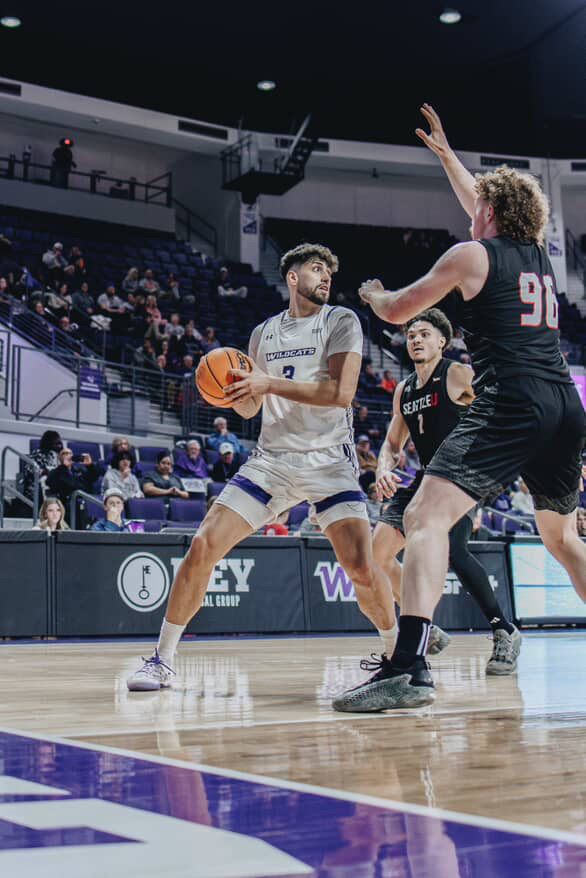
Four years in college, three of them playing: Bettiol at UMass is chasing the Madness.
How was the NIL chapter introduced to you in these conversations? Do they talk about it with the players, or is it just basketball for you?
All the financial negotiations were handled by my agent; the coaches never spoke to me directly about how much money I would make, they never mentioned anything—never a dollar or a word. Everything was strictly about basketball, between the team and the school. When negotiations get more advanced, schools usually try to arrange a Zoom call. During these calls, they show you a PowerPoint presenting the school, what they offer, players similar to your position they have coached in the past, and what they expect from you. Usually, the entire coaching staff participates: head coach, assistant coaches, managers, and others, and it’s often the first time you meet them this way.
Are these calls important to understand who is honest and who is not?
Let’s say yes and no. Often you can tell when a coach is genuine and when they are not. If a coach writes to you and seems too perfect, never mentioning any negatives, that’s a red flag. For example, the coach who recruited me here, Coach Matt Figger, was head coach at UT Rio Grande Valley and played against me in the WAC a couple of years ago, so he knows me well and knows how I play. The system we had at ACU is very similar to the one here, so he explained and showed me that it would be easy for me to adapt.
NIL chapter: what activities will you have to do?
Being international, I can’t do any kind of NIL activities. I wasn’t able to do them even at Abilene. There’s a complicated tax issue behind it—I work in America but would have to be paid in Italy. So, they pay me to play, and I don’t have to do anything else.
Let’s move on to UMass: you already told us how the contact with them started, so tell us about Coach Frank Martin, a man with a great NCAA career, having even reached the Final Four. How are you finding Massachusetts?
I’ve been here for about two and a half weeks. Tomorrow we finish the first part of summer: we started last Monday and have done 10 consecutive days of workouts, weight training, team activities, and the like. Coach Martin hasn’t said much during practice yet, leaving more space for the assistants to lead. From what I’ve heard, he’s a very lively and outgoing coach, but he knows exactly what he’s doing. He has an incredible resume: he’s coached at high levels for over 15 years and has worked with many NBA players. The key factor that convinced me to come here is his focus on big men, playing a lot with fours and fives, which was decisive for me when making my decision.
How are you getting along with the team? It’s a delicate year for UMass, which is changing conferences after forty years, moving from the Atlantic 10 to the MAC.
Let’s say it’s going very well. So far, all the guys are very friendly and willing to get to know each other and build relationships, which will be fundamental during the season. I believe the strongest teams are those with solid bonds between players. I’m fitting in well; there are only 3 or 4 guys who were on the team last year, so there are about 10-11 new people. As you said, it’s a new team, but in my opinion, it’s easier to join a completely new group where everyone wants to get to know each other rather than one that has been together for years. We want to win the MAC and do our best as a team. Personally, I want to have a good year, a successful final year to start my professional career on the right foot.
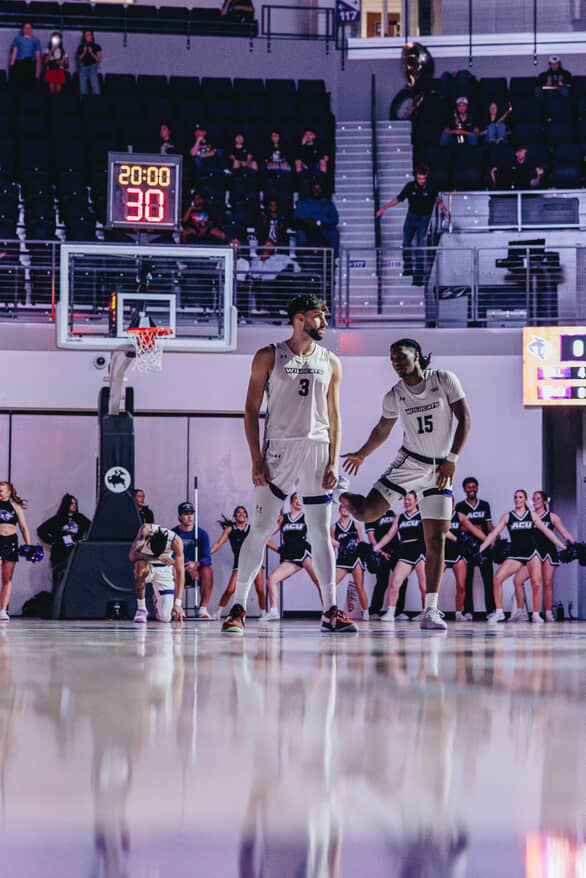
Since it’s an all-new team, how are you building chemistry? Is it a focus of the coaches, or are you players taking the initiative?
The best way is to spend time together off the court. For the summer, the coach had us all live in the same dorm, which is right across the street from the gym. We walk together, come back together, and all live on the same floor, with rooms next to each other. In August, at the end of summer, I’ll move to an apartment, but for now, it’s not a problem. At first, the dorm bothered me a bit, but now I’m used to it and I enjoy being with everyone.
You’re not the only international on the team, but you’re definitely the most experienced.
Let’s say I’m the oldest among the internationals. We have a Swedish guy, a Swiss, a Dominican, and also a Bosnian. Many, especially the freshmen like the Swedish and Dominican players, look up to me because I’ve already been through these experiences; it’s not my first time. I’m trying to help them.
Boston College and a trip to the Caribbean for sure: what will your schedule be like next season?
We play Florida State in a tournament, then face Providence and Boston College. At the Virgin Islands tournament, we play against, if I’m not mistaken, Oregon State, a very important game. Most of the other games, which are not part of tournaments, we play at home against smaller Division I teams from the area.
Goals for the next season?
Personally, I’ve never been the type to set seasonal goals: I’ve never told myself I had to average 20+10 this year. The only goal is to win the MAC and make it to the March Madness.
